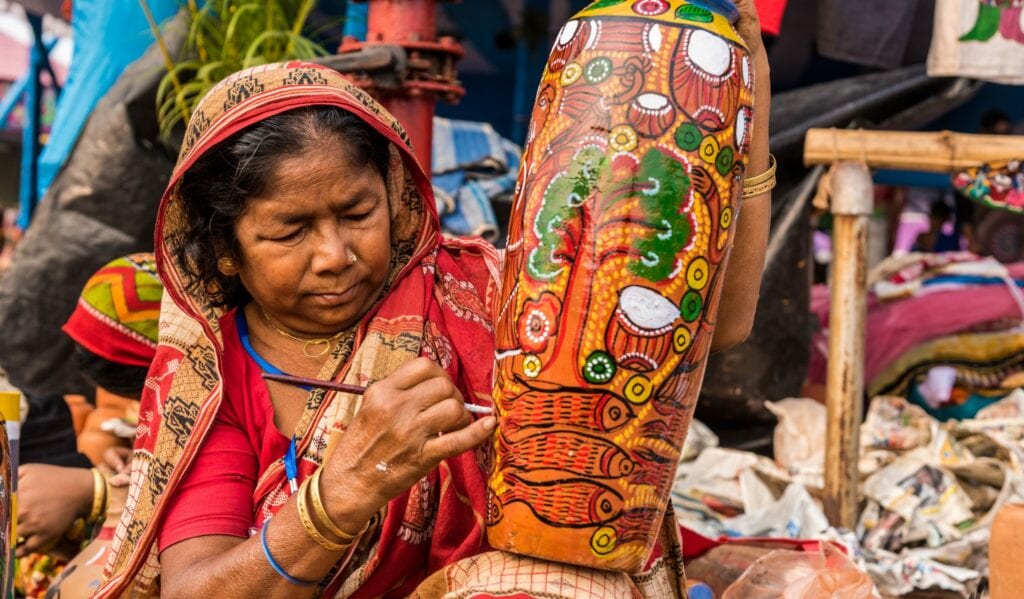5 min read
Despite efforts to reduce it, the gender gap is still alive and well for entrepreneurship in Asia. While women are the fastest growing group of entrepreneurs in Asia, they tend to have less access to financial resources. Zooming into Southeast Asia, female-owned enterprises with sufficient access to financing averaged only 5-6% of microenterprises, 12-15% of small firms, and 17-21% of medium-sized businesses. This has huge implications for gender (in)equality in entrepreneurship, considering that businesses with good access to financial capital grow 30% faster than those which cannot.
Entrepreneur support organisations (ESOs) – accelerators, incubators and actors involved in building tomorrow’s companies – have a huge role to play in bridging this gender financing gap. For most early-stage entrepreneurs, getting into a recognised incubator/accelerator and/or securing sufficient runway for their businesses to grow is seen as crucial. This creates access to more financing resources and networks down the road, and gives investors the confidence that the business has potential for growth. When female-run businesses receive more support from ESOs, their ability to raise capital later on increases.
With capital flows being more interconnected than ever before, ESOs should partner and collaborate to mobilize capital for female-led businesses. Here are three ways that they can do so:
First, work with gender-focused funds to unlock greater impact. Gender lens investing, which aims to advance the interests of women and also generate strong financial results, is gaining traction is Asia. As its goals are multifold, collective action across stakeholders will be crucial in driving impact. With the growing number of gender-focused funds like the Sasakawa Peace Foundation’s Asia Women Impact Fund, ESOs should explore collaborations with these funds to unlock more capital for female entrepreneurs.
Several ESOs have started to do so. In early March 2020, the Small Enterprise Assistance Funds (SEAF) formalised a partnership with the United Nations Economic and Social Commission for Asia and the Pacific (ESCAP) to catalyse female entrepreneurship in Asia through impact investing. Through this partnership, SEAF will leverage ESCAP’s Women Enterprise Impact Investment Fund to provide US$150 million in capital for female-led enterprises in Asia. Besides creating access to capital, ESCAP and SEAF will collaborate to build capacity for these enterprises, with a focus on providing technical assistance and grant support to achieve long-term sustainability.
Second, partner with public and private funders to promote more financing options. The three most prominent financing types in Asia’s social investment landscape, namely equity, grants and debt, might not always be the right fit for businesses. They can potentially ignore certain groups of entrepreneurs by focusing on specific business models and risk appetites. At a time when funding is increasingly skewed towards male-run businesses, ESOs should work with investors to think creatively in deploying capital. For example, ESOs can promote investment vehicles like hybrid financing, which generates higher returns than debt but is more liquid than equity. This provides businesses with a more supportive financing environment, and can mobilise more capital towards female-led businesses.
Case in point is the collaboration between Netherlands-based fund manager Capital 4 Development Partners (C4D Partners) and Investing in Women, an Australian Government initiative to strengthen financial access for female-led MSMEs. Investing in Women is a key investor in the C4D Fund, which deploys hybrid financing to support growth-stage MSMEs in Indonesia and Philippines. The Fund is rooted in C4D Partners’ commitment to adopt a gender lens in its investment strategy, and invest at least 30% of its capital in female-led MSMEs. Through this collaboration, C4D Partners and Investing in Women have found that hybrid financing instruments are a fit for many female-led SMEs in Southeast Asia, whose return profiles are usually rooted in long-term, sustainable margins rather than hyper growth.
Third, make your programmes more accessible and inclusive for all genders. Female-led growth-stage businesses receive considerably less funding pre- and post-acceleration partly because of fewer participation levels in these programmes. This calls upon ESOs to (re)design their activities to increase participation of all genders. Actionable plans include securing a gender-diverse pool of facilitators and mentors, developing marketing materials that explicitly depict programmes as gender-inclusive, and ensuring that programme location(s) and logistics are accessible for all regardless of gender.
Recently at the AVPN South East Asia Summit, the Gender Lens Incubation and Acceleration Toolkit (GLIA Toolkit) was launched by Japan-based The Sasakawa Peace Foundation (SPF) and Frontier Incubators, an initiative of the Australian Department of Foreign Affairs and Trade. The GLIA Toolkit provides practical tools, strategies and case studies to show how ESOs can apply a gender lens in their programmes. To incorporate perspectives from local practitioners, the Toolkit was piloted with six incubator and accelerator partners in Southeast Asia.
Keen to enable more diversity and inclusivity in Indonesia’s social entrepreneurship ecosystem, Instellar came on board as a partner. Having run incubation programmes for early-stage Indonesian social enterprises since 2014, Instellar found that the number of female-led micro-businesses entering into growth-stage businesses is lower than male-led micro-businesses. This is due to gaps between female and male entrepreneurs in soft skills required to lead and grow businesses, such as confidence and negotiation skills. Instellar hence conducted workshops for female entrepreneurs to refine their negotiation skills and acquire tactics to close deals more effectively. Instellar also partnered with other female organisations to organise these workshops, to reach more female entrepreneurs and increase impact.
The various players highlighted in this article offer examples of how ESOs can collaborate to mobilise capital for female-run businesses in Asia. With the mandate of helping businesses grow, ESOs have traditionally focused on business-centric strategies – strategies that impact business behaviour and decisions. However, helping business grow also entails helping them access outside capital, so that they can scale their solutions. In today’s ecosystem where fluid capital flows have the power to reach groups in the last mile, collaboration with ESOs to mobilise more capital towards female-run businesses is more needed than ever.


















